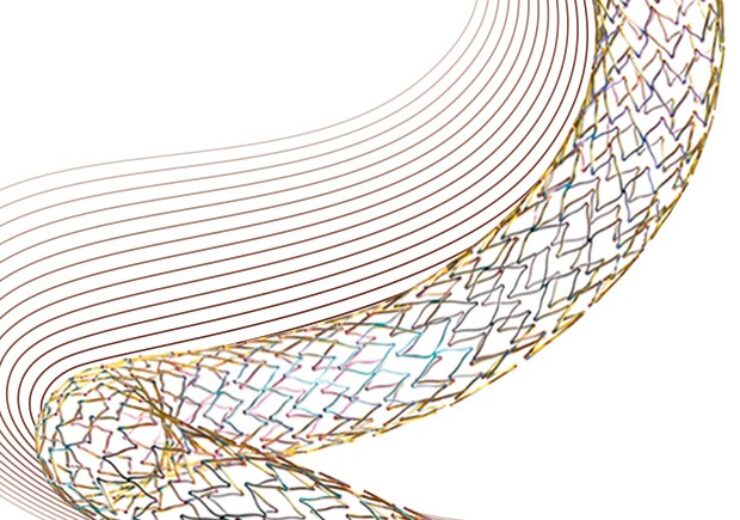The Pulsar-18 T3 stent system is indicated for improving luminal diameter in patients with lesions in the superficial femoral, proximal popliteal and infrapopliteal arteries, with reference vessel diameters from 3mm to 6mm and total lesion lengths up to 190mm

Biotronik Pulsar-18 T3 stent system. (Credit: BIOTRONIK)
Biotronik has secured the US Food and Drug Administration (FDA) approval for its new Pulsar-18 T3 peripheral self-expanding stent system to improve implantation procedures for endovascular treatments.
The Pulsar-18 T3 stent system is indicated for improving luminal diameter in patients with lesions in the superficial femoral, proximal popliteal and infrapopliteal arteries.
It is designed to treat symptomatic de novo, restenotic or occlusive lesions with reference vessel diameters from 3mm to 6mm and total lesion lengths up to 190mm.
Biotronik will offer Pulsar-18 T3 in up to a 200mm stent length for treatment of long lesions.
The system’s 4-French low-profile delivery system will decrease the risk of access site complications and reduce the need for closure devices, compared to 6-French devices.
Its tri-axial system with braided shaft design will facilitate stable and accurate implantation of the clinically proven Pulsar stent.
In addition, the thin struts and low chronic outward force (COF) of the Pulsar-18 stent are said to reduce the mean area of restenosis.
Biotronik has redesigned the Pulsar-18 T3 stent system with new features to enhance its deployment and builds on the performance of its established Pulsar stent.
The redesigned system is said to provide physicians with an intuitive and ergonomic wheel-operated handle for one-handed stent release, with enhanced control during deployment.
The German medical device company is also planning to commercialise the device in the US starting in early August.
Biotronik chief medical officer David Hayes said: “The Pulsar-18 T3 stent system is an innovative solution that delivers clinically proven performance, providing effective therapy that is easy to use for physicians while minimising metal burden and may reduce the risk of restenosis for patients.”
Recently, Biotronik entered into a civil settlement with the US Department of Justice to resolve allegations regarding the overuse of paid consultants to train field personnel and limited instances of excessive customer meals and travel.
